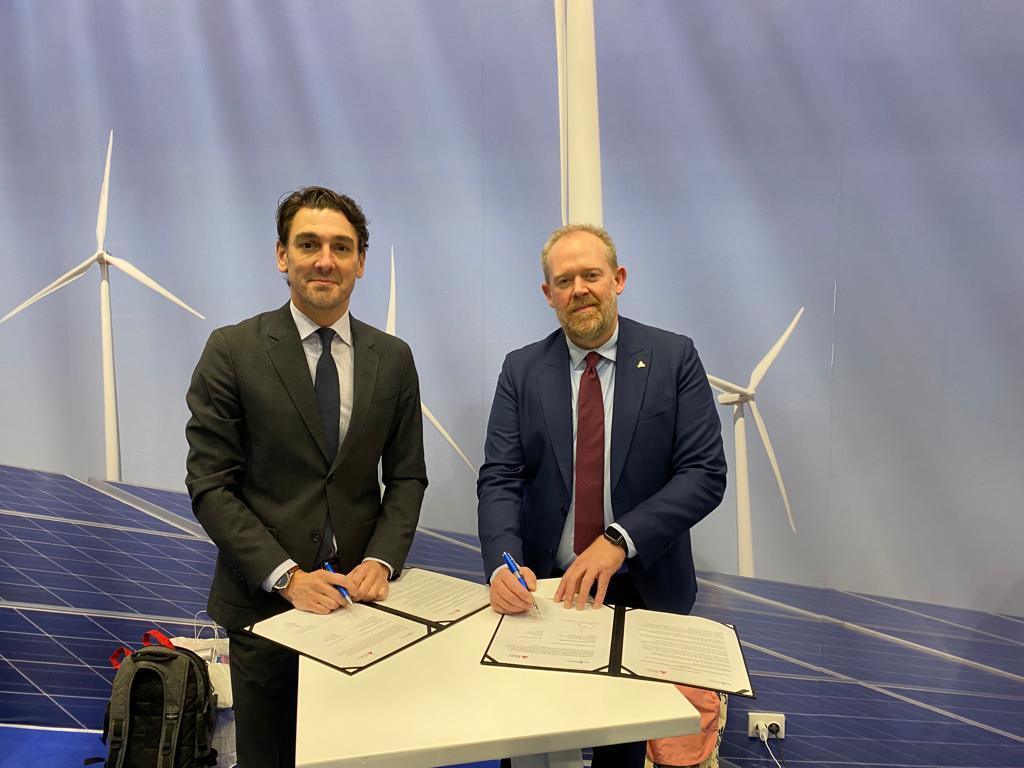The Port of Antwerp and the Port of Montreal pledge to create a green shipping corridor
At the 26th Conference of the Parties (COP26) on climate change, the Port of Antwerp and the Port of Montreal have signed a cooperation agreement to support the creation of the first green shipping corridor in the North Atlantic.
Through this agreement, the two pillars of marine transportation between Europe and North America pledge to mobilize their respective public- and private-sector partners alike in the assessment, identification, development and adoption of shared or complementary solutions and infrastructures. Together, they intend to facilitate the trade of green fuels and the supply of renewable fuels and clean technologies to vessels.
By pooling their respective expertise and building on a framework partnership in place since 2013, the Port of Antwerp and the Port of Montreal, both signatories of the Call to Action for Shipping Decarbonization, intend to actively contribute to the achievement of international objectives while creating economic opportunities for their respective markets.
Montreal Port Authority President and CEO Martin Imbleau: “The St. Lawrence port and marine ecosystem is well positioned to use, distribute and export renewable fuels such as hydrogen and methanol produced using Quebec hydropower. Our green energies can serve vessels and international markets alike. This agreement makes it possible for us to build on our respective strengths to decarbonize not only our industry, but also our respective economies.”
Antwerp Port Authority President and CEO Jacques Vandermeiren: “Along with local and international partners, the Port of Antwerp is leading the transition to a cleaner, more climate-friendly world based on renewable and circular energy. The Port of Antwerp is one of the largest bunkering ports in the world. As such, the Port of Antwerp wants to play a pioneering role in the integration of carbon-neutral fuels in the bunkering market. In this way, together with the Port of Montreal, we are working on the transition to a multi-fuel port, with renewable fuels that are better for the climate and the quality of the air.”
Highlights
- Through the transshipment of low-carbon fuels, the use of renewable fuels and clean technologies to power vessels, and the development of shared or complementary infrastructures, the partners intend to foster direct and indirect electrification of the shipping industry, in particular through green hydrogen, green ethanol and green methanol, as well as biofuels such as biodiesel and renewable natural gas.
- Green fuels produced using Quebec hydropower are a low-carbon solution that can facilitate and accelerate the energy transition.
- The Port of Antwerp and the Port of Montreal have been working together since 2013 on projects in sustainable development and the energy transition, innovation and trade.
- The Port of Montreal, Canada's leading port on the East Coast, is the hub of a network of liquid bulk production and distribution, notably with a number of partners who export renewable fuels and biofuels through its facilities located in Montreal's east end.
- 80% of world trade transits by vessel and generates 3% of the world's GHG emissions.
Note: On the picture from left to right: Martin Imbleau (Port of Montreal) and Tom Monballiu (Port of Antwerp)
